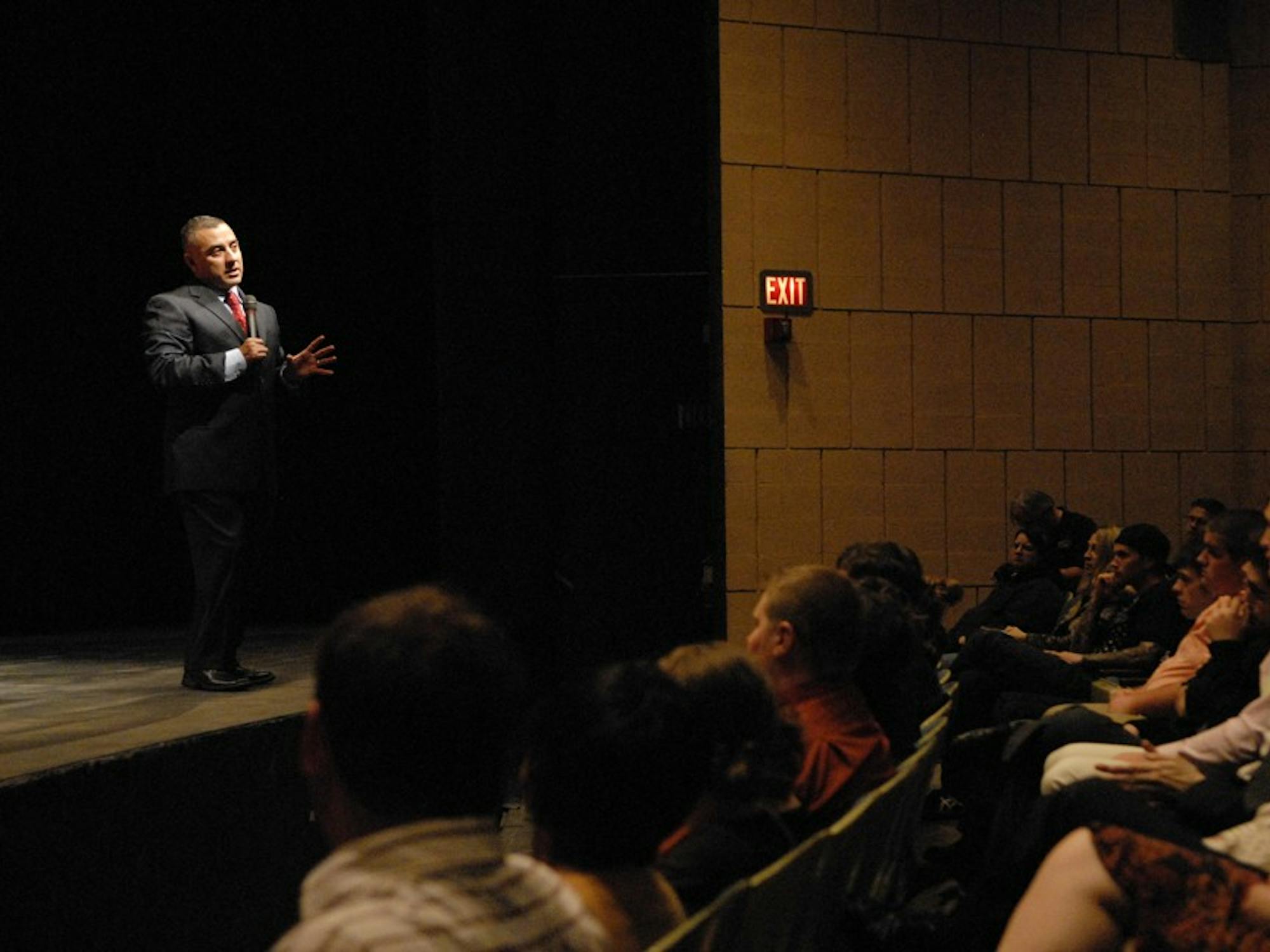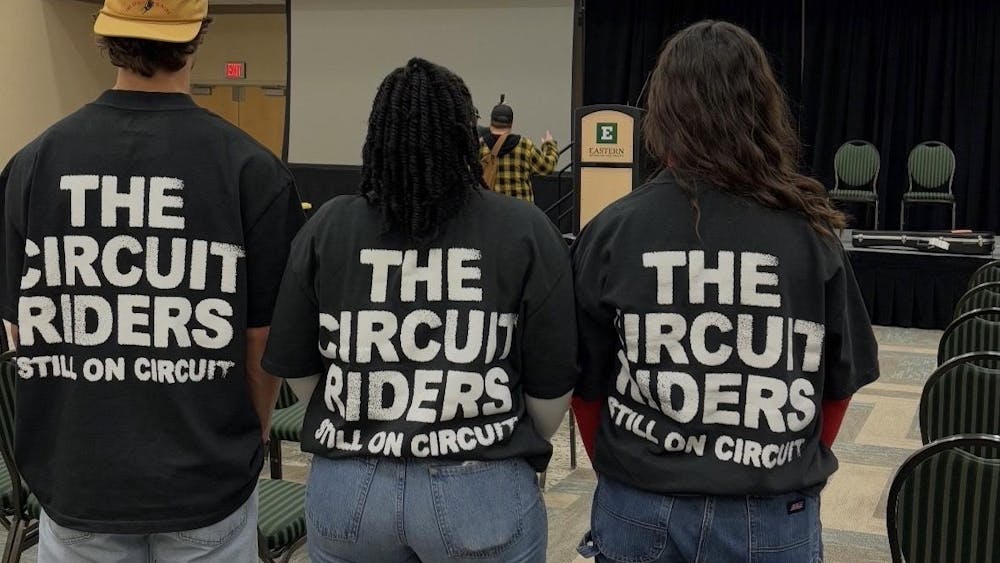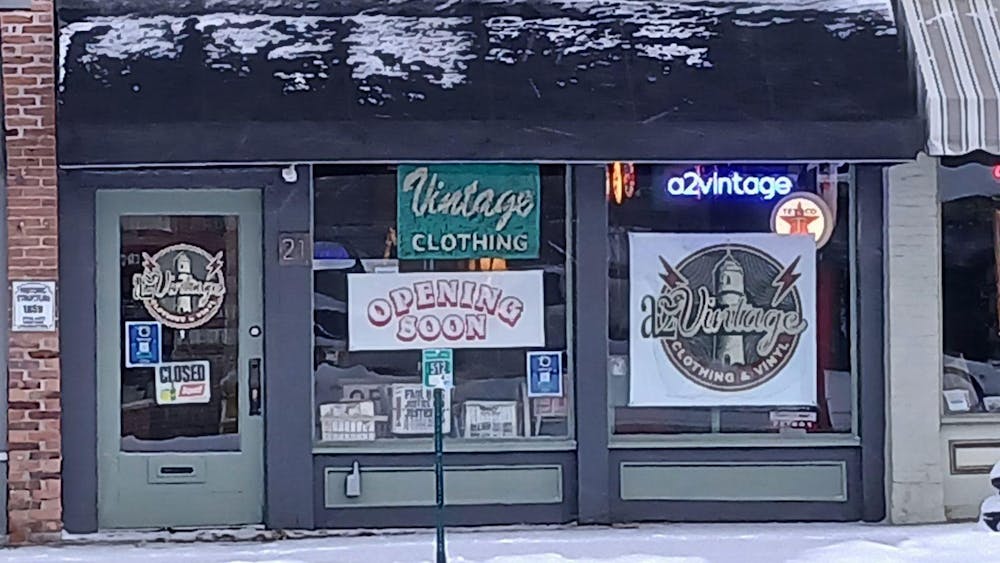Retired staff sergeant and LGBT activist Eric Alva spoke in Quirk Theatre last Thursday about the U.S. military’s controversial “Don’t ask, don’t tell” policy.
Dr. Dennis Patrick, a professor in the communication, media and theatre arts department, provided the audience with background information on the policy.
“In 1992, Clinton was against keeping LGBT people out of the military,” Patrick said. “The solution was that Congress passed ‘Don’t ask, don’t tell’ in 1993.”
The policy permitted LGBT individuals in the military as long as they do not tell anyone they are homosexual, bisexual, or transgendered.
They are also not permitted to date someone of the same sex while they are in the military.
Alva saw active duty in 1992 in Somalia during the Gulf War and in 2002 during the Iraq War. He was the first person injured during the Iraq War when he set off a land mine.
“My hearing and index finger were gone,” Alva said. “I was holding my right arm and I did not know what happened. I was put in a medic zone because there were no hospitals. I had broken my right arm and my left leg was amputated above the knee. I thought it was a bad dream.”
He was taken to the United States and given a Purple Heart.
After a year of physical therapy, he recovered and was discharged after 13 years of service. During his recovery he was visited by former President George W. Bush, congressmen, senators, the Office of Defense, and many others.
“My favorite visitor was Sheryl Crow,” he said. “I was on Oprah and in People magazine. I was given an anonymous check for one thousand dollars from someone who wanted to thank me for serving our country.”
After Alva was discharged from the military, he joined the Human Rights Campaign.
“The Human Rights Campaign is the biggest movement for LGBT people,” he said. “It has 800,000 members. I joined because in 2005, Texas introduced Proposition
Two to ban gay marriage. In 2006 eight more states had Proposition Two and I realized I had to do something.”
On Feb. 8 2007, Alva came out as a gay man and despite the policy, he said he served for the U.S. because he believes in freedom and liberty for all— including LGBT individuals.
“Since “Don’t ask, don’t tell” has been in place, 13,500 people have been fired,” he said. “The military has spent 200 million to 2.1 billion dollars to replace and train all of the people they have fired. There are 65,000 known gay people serving in the military. Some people choose to leave on their own because they are tired of hiding who they are.”
Alva provided statistics showing approval of LGBT individuals serving in the military has increased over the years.
“In 1993, 38 percent of people favored LGBT people serving in the military,” he said. “In 2008, 76 percent of people favored LGBT people in the military, most people in the military are fully aware that they work with LGBT people. The only three counties that don’t allow people to be openly gay are the United States, Turkey, and Portugal.”
The Military Readiness Enhancement Act would get rid of the current policy by enacting one that would be nondiscriminatory on the basis of sexual orientation.
At the end of his presentation, Alva received a standing ovation from the audience.










